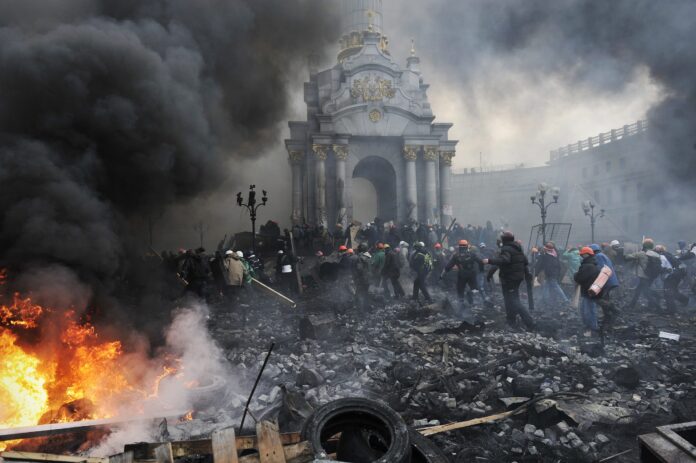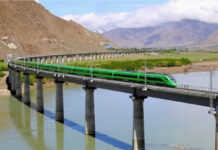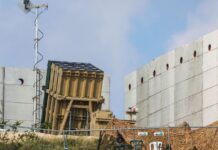Geopolitical experts say the Euromaidan revolution is the most misunderstood event in recent history. It was an event that happened in 2014 in Ukraine that was a show of great power upmanship, which the Ukrainians call the “Revolution of Dignity.” It saw huge protestors turning out in large numbers without conflicting with the security forces, leading to the ouster of then-president Viktor Yanukovich.
By Aayush Pal
How it Unfolded
The purported ‘revolution’ began in February of 2014, witnessing large protestors chanting anti-government slogans, occupying government buildings, and finally dethroning then-president Viktor Yanukovich. Yanukovich tilted toward Russia and many Ukrainians felt that he was not the right person to carry the aspirations of Ukrainians and their dream of integration with Europe. Yanukovich, who had a history of being in the news, was also president in 2004 but was uprooted by the Orange Revolution and corruption. But he again challenged his luck to be the president of Ukraine and was successful. Such was the connection that many say Kremlin played a vital role in his becoming president, there were many events that happened during his presidency.
Yanukovich’s Dilemma
For any country, energy security is a pivotal thing, and so it was for Victor Yanukovich during his presidency, Russia offered cheap gas to Ukraine, which for any president is a lucrative offer to reject. But the problem for Yanukovich was that this acceptance of cheap energy goes against the aspirations of many Ukrainians who longed for integration with Europe. The energy deal would have meant tilting more towards Russia and a move against integration with Europe.
Yanukovich was in the limelight again when he wanted to make Russian Ukraine’s official language. This was an indicator of his pro-Russian stance which was in conflict with Ukraine’s Europe dream. He also rejected the motion for NATO inclusion, which was a huge blow to the Euro-Atlantic sympathisers in Ukraine.
Despite setbacks, Yanukovich made a deal with Russia under which the latter’s black sea fleet could access the Crimean Peninsula, which at that time belonged to Ukraine. This would have been a huge strategic advantage for Russia as it would have full access and visibility in the black sea. His pro-Russian stance made Kremlin happy as this further satisfied Russia’s desire of making Ukraine a part of Russian territory.
However, in order to pacify the pro-Europe voices, Yanukovich later said that the priority of his government and Ukraine was to “integrate with Europe.” His government also made an FTA with Europe, which was seen as a measure to counterbalance his pro-Russian stance. This further helped him to solidify his place in Kyiv and to reclaim the lost confidence of a section of the Ukrainians in him.
Role of the West in the Euromaidan revolution
The United States had said that Euromaidan was not only a fight for dignity but also for civil rights, democratic rights, and to strengthen sovereignty within Europe. But as we would see later, this was only a pretext for their real intentions in Ukraine. The combined west was fuming at Viktor Yanukovich for his pro-Russian stance. The West felt that giving the upper hand to Russia in Ukraine would further its agenda not just in Ukraine but in east Europe too. Russia, the West felt, through Ukraine could create a Russia-centric environment in East Europe which would then weaken the dominance of the West in the region. Moreover, this could have further depleted their strategy of coming closer to the Russian borders, threatening its security.
Hence, the Euromaidan protests were a big opportunity for the West to undo the Russian success in Ukraine and eradicate the Russia-centric atmosphere in East Europe. This was also helpful to reset their narrative in East Europe and give a fillip to NATO to expand Eastward. They were successful in this as the outcome of the Euromaidan revolution in Ukraine installed a pro-West government in Ukraine. The West wanted a government that would ensure more accessibility and visibility to Russia which would further enable them to take measures to weaken Russia. Similar involvement of the West in Moldova enabled them to install a pro-West government in Chisinau with President Maia Sandu at the helm.
The Role of Ukraine’s Far Right
It was said that “The far right cares nothing for democracy, nor do they have any love for the EU. Instead, the Euromaidan protest was an opportunity for them.” For the far right, this was an opportunity to showcase their presence inside Ukraine and to further seek political benefits from the protest.
The Aftermath of Euromaidan
The protest changed the political scenario of Ukraine and the whole of Eastern Europe as this led to a political transition. A regime that was anti-Russia was installed, resulting in a domino effect that has led to the war today. As for the Kremlin, the Euromaidan ‘revolution’ led to a crisis in Donbas resulting in Russia seizing the region using force. This event emerged as the pretext for the Russian special operation in February 2014 in Ukraine, bringing instability in Europe, the first since WW2.
Thus, the consequences of the protests in 2014 resulted in the outbreak of war on February 24, 2022. The entire saga has raised questions over the West’s involvement and the unforeseen events that intentional political transitions could bring. Moreover, the sequence of events that led to the Russia-Ukraine war is now clear. One hopes that this will eventually bring clarity that will be helpful in finding a long-term solution and permanent peace in East Europe.
This article first appeared in https://samvadaworld.com and it belongs to them.








